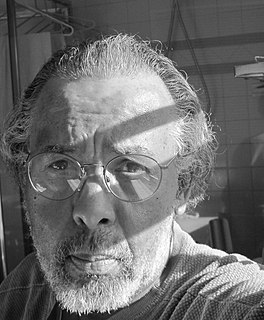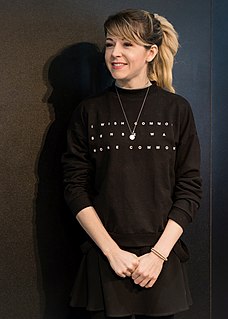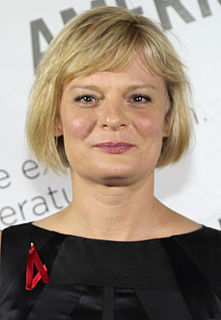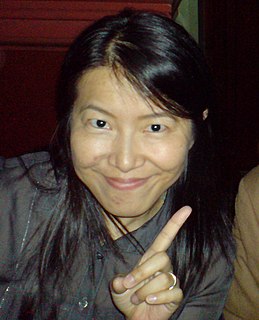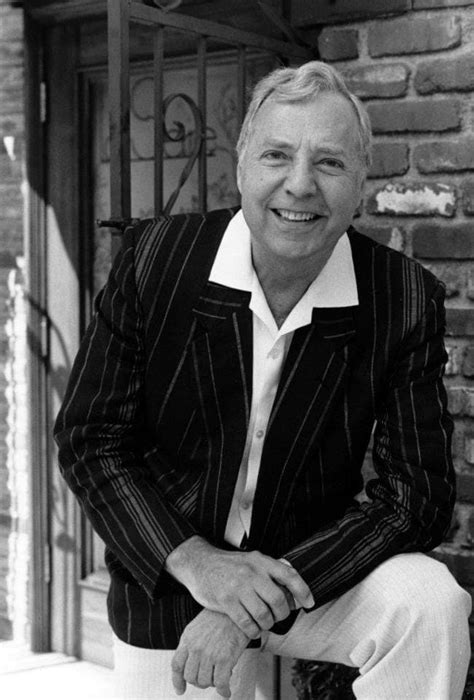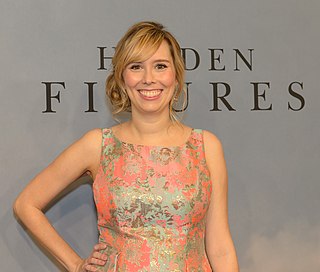A Quote by Michael Ondaatje
I tend not to know what the plot is or the story is or even the theme. Those things come later, for me.
Related Quotes
When we're in the story, when we're part of it, we can't know the outcome. It's only later that we think we can see what the story was. But do we ever really know? And does anybody else, perhaps, coming along a little later, does anybody else really care? ... History is written by the survivors, but what is that history? That's the point I was trying to make just now. We don't know what the story is when we're in it, and even after we tell it we're not sure. Because the story doesn't end.
My fiction is based on both my own experience transformed, altered, juggled and changed to suit the demands of composition, character, and plot. If I see a theme emerging in a story I will likely take it up and develop it. I hardly ever set out with a conscious plan and if I do the story usually takes over and takes me where it wants to go.
I always write a draft version of the novel in which I try to develop, not the story, not the plot, but the possibilities of the plot. I write without thinking much, trying to overcome all kinds of self-criticism, without stopping, without giving any consideration to the style or structure of the novel, only putting down on paper everything that can be used as raw material, very crude material for later development in the story.
There's that lovely thing for the first month or two of writing a new book: OK, I don't know what that character's going to do, but we'll find out later. After about three or four months you come to that bit where you've got to put some plot in before it's too late, and you have to go back and start inserting plot, and, ooh, I've left out the literature, OK, lets put some in.
I don't even know of a room that doesn't have a flat-screen TV in it. These are things that just come in environments these days. And if you were going to walk into a space, where did you come from? Was there a bathroom around the corner? These are things that are authentic, and that's what makes successful television. It's not pre-produced garbage. It's believability and connection. The environment has to tell that story.
There isn't one thing in particular; rather, a lot of different things give me inspiration. I tend to come up with tunes when I do things that are not part of my daily routine, like traveling. But even during my everyday life, I come up with tunes when I'm emotionally moved. By looking at a beautiful picture, scenery, tasting something delicious, scents that bring back memories, happy and sad things... Anything that moves my emotion gives me inspiration.
I am religious by nature, I'm not a nihilist. I don't follow, I don't even know what the tenets of things like deconstructionism are, and all those schools that come up and their way of looking at things that people strive to incorporate into what they write. I don't even know what they are. Because I sense from a distance that I don't want to know. And therefore even if I had no politics, actual politics, my cultural point of view is hopelessly out of date with the modern literary sensibility. Which is nihilistic, and ironic, detached, cool, and cowardly.




